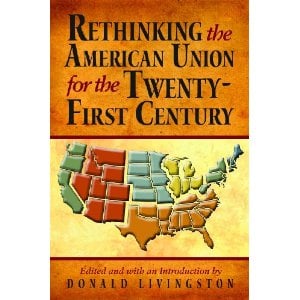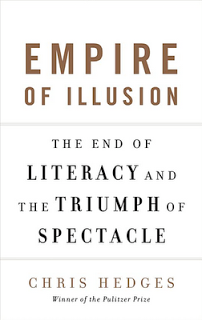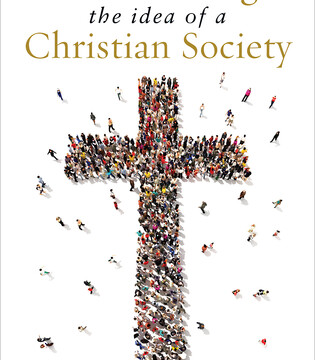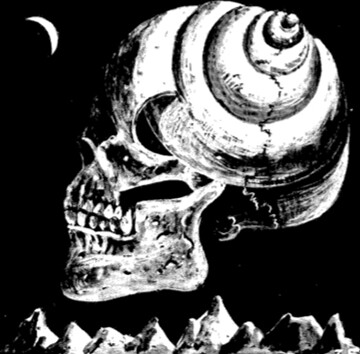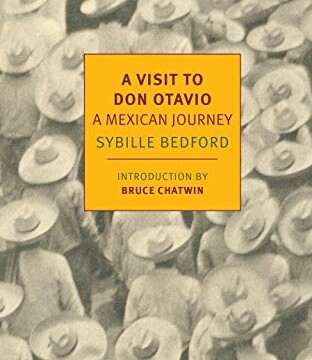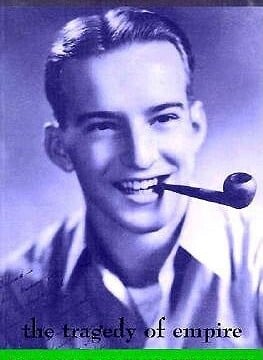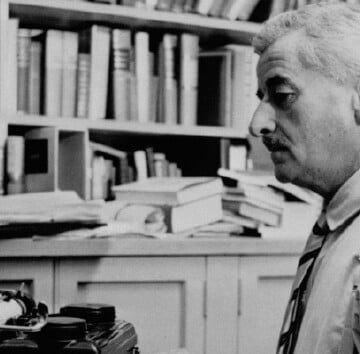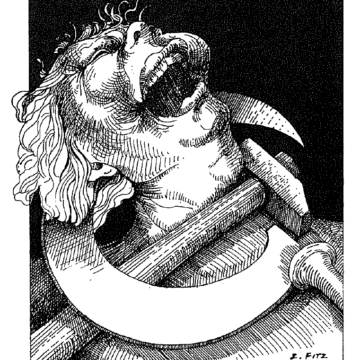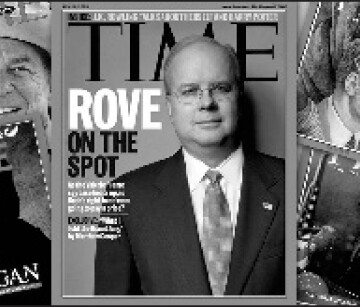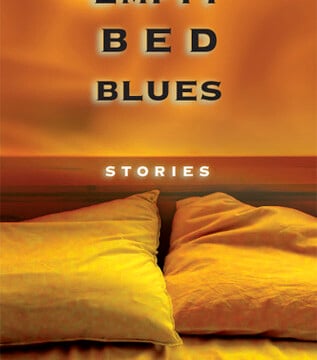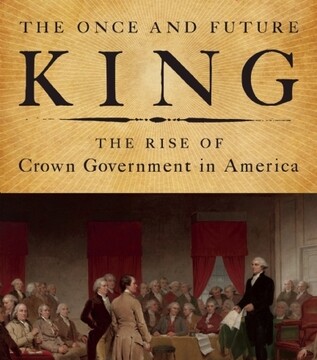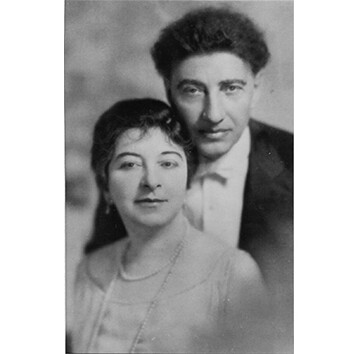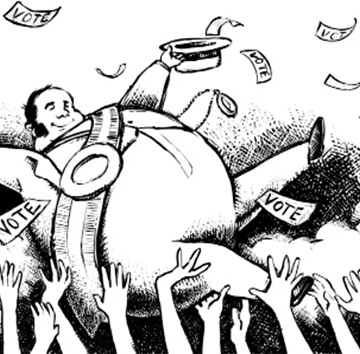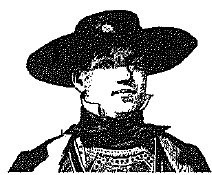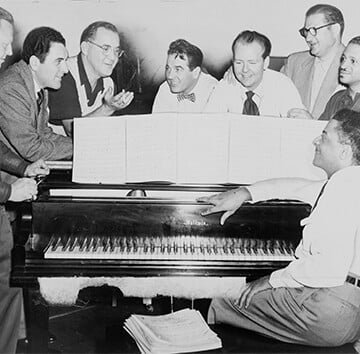At the Jan. 6 rally in Washington D.C., those of us entering the VIP section were required to throw our tote bags in the trash. We divvied up various items, threw the rest away, and entered the grounds. When we left the rally, someone had emptied all of those cans onto the street and the...
1128 search results for: Forgotten%2525252BHistory
Let’s Cheat on Our Taxes
As I write, April 15 is still fresh in the mind, and the sting of death remains, combining the current pangs of tax extraction with the promise of a greater burden to come, thanks to the Barackification of heathcare. So imagine my delight when I read in a back issue of a leading Christian magazine...
A Doctor in Spite of Himself
On December 3, 1989, the London Telegraph included a piece of academic news from the United States: “Researchers in his native Georgia must soon decide whether to reveal that the late Dr. Martin Luther King, murdered in 1968, was—in addition to his other human failings—a plagiarist. There is now much doubt as to whether his...
George Garrett Talks
This interview took place on September 18 and 19, 1985, at Garrett’s house in Charlottesville, not far from the University of Virginia. It is a sizable stone house, rented, with most of the available wall space covered with hastily erected brick-and-board bookcases. Not quite settled yet, Garrett and his wife, Susan, joked about how they...
The Long March Through the Constitution
In the opinion of Marshall DeRosa, one of the contributors to this book, The transition from states’ rights to unitary nationalism, i.e., domestic imperialism, was the most significant development in American politics. This marks one of the worst fears of the framers coming to fruition, tyranny. That is a self-evidently correct judgment. It is also...
Don’t Worry, Be Happy
Chris Hedges, a former New York Times war correspondent, is not happy with the current state of American civilization, a view he makes crystal clear in Empire of Illusion. Hedges is an independent man of the left and a cultural conservative. Chronicles readers may recall the controversy over his commencement address in 2003 at Rockford...
Causley at 70
My formal association with Chronicles began in February 1986, when, at the suggestion of its editor, I wrote an obituary of Philip Larkin. Looking back at the history of my loves, I explained that I had decided to buy and edit The Yale Literary Magazine because “my ambition in life was to find the poet...
The Forgotten
I recently came across an item in the Catholic press describing a Mass of Reparation offered in Britain for the 12,000 Slovenian Catholics handed over by the British to be murdered by Yugoslav Communists in May 1945. This piece caught my eye for personal reasons: The fathers of two very close friends were among the...
Neocons in the Dark
As I write this the news of Tom Wolfe’s death is breaking. The stylish author of The Right Stuff, The Electric Kool-Aid Acid Test, and the progenitor of the “New Journalism,” Wolfe was one of the last of the serious celebrity authors. He contributed at least a few memorable phrases to the American lexicon, one...
The Unbanable Book
A recent full-page advertisement in the Chicago Tribune, which no longer calls itself “The World’s Greatest Newspaper,” listed four documents that supposedly are foundational: the Magna Carta, the Treaty of Versailles, the Declaration of Independence, and the Infiniti Retailer Pledge. These four, according to the advertiser, Infiniti, are totally trustworthy, because: “A promise is a...
Christmas, Texas
I am fumbling in the console, looking for my Jim Reeves Christmas CD, when I notice the wall of rolling, gray clouds approaching from the east. The sun is sliding slowly beneath the horizon in the west, shooting shards of orange-red hues into the purple-blue sky, presenting a striking contrast to the dark gray wall,...
Millions for Tribute
That imperial anthem, the hymn of the U.S. Marine Corps, is today somehow an obscure exercise. The halls of Montezuma? The shores of Tripoli? Our gum-popping, Gucci-schlepping youth can no more respond to its referential difficulties than could the Ivy League-credentialed savants of the War Party. What’s more, the pseudopatriots would be shocked to know that...
Forgetting a Villian
Imagine it is the year 2030, and you are talking to some young adults. To your horror, you find that they have never heard the name Osama bin Laden. As you begin to rant about the ignorance of the young, you find to your still greater astonishment that none of your older friends have any...
The Banality of Fiction
It’s Sunday morning in London. The Sunday Times is here. (Yes, we too have a Sunday Times.) The “Week in Review” section is nice and fat. (Yes, it’s nice and fat here, too.) Headline: “End Game: Why the Soviets are pulling out of Afghanistan.” Photo of Najibullah, photo of Gorbachev, photo of two smiling soldiers....
The New Class War
“When a culture of freedom becomes a cult of freedom, injustice, suffering, and social dysfunction get explained away as ‘choices.’” —R.R. Reno The burden of this important book by the editor of First Things is the need to restore genuine freedom to American society—and, by implication, Western society as a whole....
God, Man, and Family
The first chapter of the Bible forms the basis of the Christian understanding of the nature and dignity of man—and woman: “So God created man in his own image, in the image of God created he him, male and female created he them” (Genesis 1:27). The next verse contains the first command given to the...
Unsere Leute
The familiar lane is rutted with two deep truck tracks. “This always happens when it rains,” I think, and worry about getting stuck until I remember that the rain was two days ago and the ruts would have hardened by now, forming a two-lane trail to the farmhouse, Grandma’s house, “Grandma in the country.” Grandma...
What the Editors Are Reading
As the author of a travel book as well as many novels, I’ve often suspected that writing a superior work in the first category is a greater challenge than writing one in the second. The comparative difficulties become clear when you develop the same material, as nonfiction first and then again as a novel, with...
The Journeys of Aleksandr Solzhenitsyn
Shukov felt pleased with life as he went to sleep . . . The end of an unclouded day. Almost a happy one. [from One Day in the Life of Ivan Denisovich] The journey is over. Aleksandr Isayevich Solzhenitsyn survived war, the Gulag, and cancer; was exiled from his homeland, only to return, having outlived...
The Spirit of Atlantic
“The Empire is peace.” —Napoleon III Bill Williams was an Eagle Scout, basketball star, paperboy, and jazz drummer in the Atlantic, Iowa, of the Depression. He was a wholesome mixture of small-town bohemian and Jimmy Stewart: he shared bottomless ice cream sodas with his girlfriend and read Hemingway; he played piano and made a soapbox...
Faulkner in Japan: The “American Century”
In August of 1955, William Faulkner traveled to Japan. Based in the out-of-the-way mountain province of Nagano—which, until the 1998 Winter Olympics, enjoyed a benign anonymity in perfect proportion to its relative unimportance in world affairs—Faulkner lectured and temple-toured for two weeks, doing the bidding of the U.S. State Department, which had sponsored his trip. ...
Republicans Should Focus on Harris Rather Than Walz
It is obvious why so many in the GOP are reluctant to attack Harris and, instead, focus their sites on Walz. They deeply fear being labeled racist and sexist for attacking a “woman of color.”
Truth Dwells in the Imaginary
The United States is a great country, as everyone knows. This is why America has many friends, among whom one must also take account of its less amiable, jealous friends. One must not forget that America saved France in 1918 with the disembarkation for the second battle of the Marne and saved Europe from the...
Waugh on Film
The High Green Wall (1954) Adapted for The General Electric Theater Columbia Broadcasting System Directed by Nicholas Ray Teleplay by Charles Jackson In 1929, Evelyn Waugh wrote that film was “the one vital art of the century,” an accolade he would later qualify. While he came to believe that cinema had “taught [novelists] a new...
Western Swing
The Hollows, Hasty and Happy, were hardly ever sure where they were. At times, they weren’t sure who they were, either, but it never mattered for them because they were very, very rich. Hasty was from Chicago originally, and Happy from Mississippi, where she had earned half a degree from Ole Miss. In the days...
Let’s Go Poland
Conversations with those who have traveled throughout the Eastern Bloc reveal that group tours, not solo travel, are the rule rather than the exception. For a hefty fee, vacation moguls will relieve the prospective tourist of three major brain drains: consular relations (visas), hotel accommodations, and transportation. Group tour-guides will provide the serious history enthusiast...
The Fall of Lord Blackadder and Lady Manolo (of Blahnik)
Mark Steyn once told me a revealing story about Conrad Black’s “conservative” Canadian national newspaper, the National Post. It seems star columnist David Frum had ventured this evaluation: “The Post has a problem. It was started to save Canada, but Canada isn’t worth saving.” Ah, the authentic voice of the Canadian neoconservative! Or, as English...
The End of the Rove Era in Republican Politics
A few weeks after the Republicans were routed in the November 2006 elections, a longtime Bush Republican from Texas told me that it was time for Karl Rove to go. That comment spoke volumes, for it came from someone who had worked closely with Rove ever since his early days as a political consultant in the...
The Troubled Upbringing Trend
Rob Henderson's story in "Troubled" follows a recent trend in memoirs: A troubled upbringing entailing various hardships. His story is similar to J. D. Vance's "Hillbilly Elegy."
Albion Down
Recent events in the United Kingdom, show that moral Britain is not only dead, in the words of our own Christie Davis, but buried and forgotten. Consider the following two news items. First, the funeral of Tony Benn, the godfather of the hard Left in Britain, darling of that Midwestern socialist blowhard Michael Moore and...
Islam, Europe, and Slavery
At Midsummer 1631, Barbary pirates from North Africa raided the Irish village of Baltimore, and took several hundred local people into lifelong captivity. Such a distant projection of Islamic power might seem extreme and even bizarre, but it was no such thing. Forgotten today, the danger of Arab and Turkish assault remained a nightmare for...
America: An Us vs. Them Country
“Send her back! Send her back!” The 13 seconds of that chant at the rally in North Carolina, in response to Donald Trump’s recital of the outrages of Somali-born Congresswoman Ilhan Omar, will not soon be forgotten, or forgiven. This phrase will have a long shelf life. T-shirts emblazoned with “Send Her Back!” and Old...
In a Savage World
This latest volume of George Garrett’s stories and sketches is proof that the old fox has not forgotten how to raid our American cultural henhouse without running away with a few plump chickens. Chronicles readers should not have to be told that Garrett, a long-time contributing editor to this magazine, is the master of several...
Jihad’s Fifth Column
No one on the planet, by now, has not heard of the violence that greeted Pope Benedict’s references to Emperor Manuel II and his reflections on Islam. Manuel, invariably (and unfairly) described as “obscure” or “forgotten,” lived in one of those interesting ages of the world that teach lessons to those who are not blind...
Band-Aids for the Corpse
In 1973 Arthur M. Schlesinger, Jr., published The Imperial Presidency. He argued that the stretching of presidential power by Democrats Roosevelt and Truman had been necessary and benevolent, but that such behavior by Nixon was a dark threat to the commonwealth. Schlesinger’s childishly partisan and superficial tirade was soon forgotten. Time has moved on, and...
Filmlog: Liliom
Frank Borzage may well be the best film director born in the United States, and I haven’t forgotten John Ford, who was also a master. Borzage, the son of Italian-Swiss immigrants, achieved much in his films that can only be understood as Catholic art, which is why his movies are ...
Bob Mathias
One of the greatest Olympians of all time, Bob Mathias, is all but forgotten today. He was born in 1930 in Tulare, in the heart of California’s San Joaquin Valley. Robert Bruce Mathias was his name, but everyone called him Bob. Bob had extraordinary coordination from infancy onward. Although plagued by anemia, which caused him...
Bob Mathias
From the August 2013 issue of Chronicles. One of the greatest Olympians of all time, Bob Mathias, is all but forgotten today. He was born in 1930 in Tulare, in the heart of California’s San Joaquin Valley. Robert Bruce Mathias was his name, but everyone called him Bob. Bob had extraordinary coordination from infancy onward. ...
Media More Dishonest Than SPLC
Whatever the wisdom of Pamela Geller’s Mohammed cartoon event in Garland, Texas — and there’s much not to like about it, as Chronicles executive editor, Scott Richert, wrote of Charlie Hebdo’s repulsive fare after the massacre at the magazine’s office — one thing ought not be forgotten: No matter what kind of event Geller had...
The Poet as Cleaning Lady
Kristine Thatcher’s play Niedecker, produced earlier this year by the Women’s Project at the Apple Corps Theatre in New York, is about paradoxes. It is the story of the reclusive poet Lorine Niedecker (1903-1970). She has been dead almost twenty years and is largely forgotten, but when she was alive Ezra Pound championed her. Basil...
The Two Lhevinnes
Though too many years have gone by since I last crossed paths with Robert K. Wallace, that doesn’t mean I have forgotten that gifted and accomplished man. I remember him well from sites and scenes in graduate school at Columbia University; from his environment in northern Kentucky and at the old Riverfront Stadium in Cincinnati,...
Filmlog: Liliom
Frank Borzage may well be the best film director born in the United States, and I haven’t forgotten John Ford, who was also a master. Borzage, the son of Italian-Swiss immigrants, achieved much in his films that can only be understood as Catholic art, which is why his movies are now mostly unwatched or,...
Immigration: A History Lesson
“The United States is a nation of immigrants” is a meaningless statement, but that is not to say that it has no meaning. It is one of the lead lines for the Democratic/liberal/progressive agenda, and has been ever since Israel Zangwill used the mythic term “melting pot” as the title of his thankfully forgotten play...
The Wonderful World of Porn
So you thought writing hard-core pornography was an easy way to earn a living? You remembered your adolescence and those turgid paperbacks in which the vocabulary was strictly four-letter, the plot rambling and forgotten halfway through the book, and the characters’ names changed periodically as though some of the chapters were lifted bodily from other...
Commendables – Of Devotion and Democracy
Richard John Neuhaus: The Naked Piblic Square: Religion and Democracy; William B. Eerdmans; Grand Rapids, MI. The worst thing about the wonderful but secondary and nonsalvific blessings of Christianity is that once those who enjoy the divine bestowals have forgotten their source, these blessings are set up as objects of new and destructive forms of...
Of Strife and Speeches
A New Birth of Freedom: Lincoln at Gettysburg by Philip B. Kunhardt, Jr.; Little, Brown; Boston. On November 19, 1863, after Edward Everett had completed a now-forgotten oration of almost two hours at the dedication of a national cemetery on one of the Civil War’s bloodiest battlefields, Abraham Lincoln rose to deliver “a few remarks.”...
The Coming Belgoslavia?
What was meant to grow separately cannot last long as an artificial whole. This prehistoric wisdom seems to be forgotten by advocates of multiculturalism—which is just a misleading euphemism for polyethnism and multiracialism. The unpredictable side of multiracial conviviality seems to be deliberately overlooked by political elites in multiethnic and multiracial Belgium, a miniscule country...
A Bittersweet Conclusion
After so many years living in exile up north, Héctor had forgotten how pleasant fall in the Chihuahuan Desert can be, the summer heat banished for good and the first snows not yet upon the desert mountains that enclose the city on three sides. From his office on the top floor of the Museo de...
Teddy Wilson and the Swing Era Vocalists
Midway through Billie Holiday’s plaintive 1941 recording of “Jim,” there is a short piano solo barely 25 seconds in length—not even a full 32-bar chorus—by Teddy Wilson. “Jim” is largely forgotten today, but Wilson’s lightly swinging interpretation of the melody is typical of his elegant, rhythmic playing, exemplary for its Swing Era sensibility, and neatly...
Thank You for Smoking
A wise man once observed that the existence of a nation requires that many things be forgotten—in particular, those things that divide its people. Maybe that’s why the South never made it. Black and white Southerners have had their little disagreements in the past, of course, and so have flatlanders and hillbillies, rednecks and gentry....


